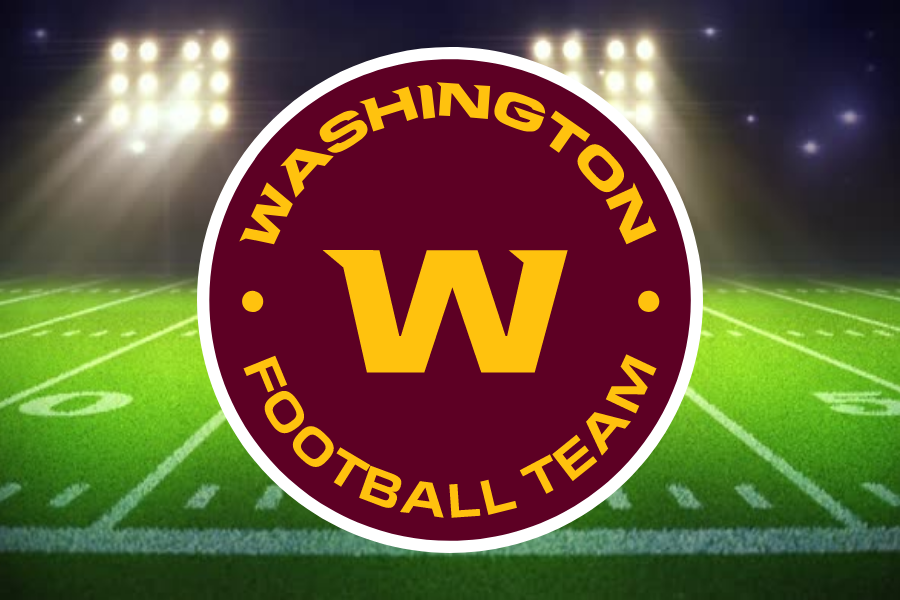Give the ‘Football Team’ a chance
Though Washington’s new team name may seem comical, this change is ultimately for the better.
November 2, 2020
History, tradition, community. Football holds a uniquely sentimental place in the hearts and minds of millions of Americans. The Washington Football Team’s former name, the Redskins, embodied the tradition and history of the city with its three Super Bowl wins and all-time great players, including Sammy Baugh, Joe Theismann and John Riggins. However, the franchise received a massive shakeup this year, one that will change the DC sports scene for this season and beyond.
In July, Daniel Synder, owner of Washington D.C.’s NFL franchise, announced that his organization would go by the “Washington Football Team” for the 2020-2021 season. The change followed a decades-long controversy over the use of the term “Redskins,” a derogatory term referring to Native Americans. Following the announcement, many people on the internet laughed at or criticized the team’s transitional title. They called it bland and said it left the team without an identity. However, scrapping the name “Redskins” is ultimately a good decision; it distances the team from a racist name and establishing the placeholder name demonstrates patience by the organization.
Though the new name has faced a slew of outside criticism, it’s important to remember that the “Washington Football Team” is likely a filler for only this season. The team retired its old moniker so close to the start of the 2020 season that obtaining a permanent replacement in time was impossible. Though the Washington Football Team sounds comical, football fans should be grateful that this organization is taking a much needed step in the right direction.
The term “Redskin” originated in colonial America. It was first used by colonizers to identify natives, and over time, became a racist slur. For decades, Native American advocacy groups, including the National Congress of American Indians, lobbied Synder and the franchise to change the team’s name, but found little success.
This year, 87 team shareholders signed a letter to major franchise sponsors urging them to halt sales of team merchandise until it was changed, citing the name’s racist history and the need for a more progressive organizational image. That, combined with continual social pressure from fans, pushed Synder to initiate a thorough review of the name, ultimately leading to its retirement.
Social change isn’t easy to come by, and is even less obtainable when those being lobbied are in charge of a nationally recognized, billion dollar sports franchise. But in some rare circumstances, mounting pressure on outdated parts of history forces much needed change. Shareholders and fans alike banded together towards this common goal, and as a result took one progressive leap in our social environment.
The placeholder name also provides the benefit of time. A name change requires extensive planning which the franchise could not complete in the leadup to the 2020 season. By announcing a placeholder name, the organization’s executive branch provided itself with a full year to organize a proper name change. It now has the necessary period to consider all possible replacement team names before introducing their selection to the public. Rushing the renaming process had the potential to be a disaster, especially since such an alteration requires a name fans can rally behind.
In such a bizarre year, Washington’s interim name change is just one of many unusual occurrences in sports. But, at the very least, it’s a crucial first step in recognizing and distancing the Washington Football Team from the nation’s racist history. Synder and the team leadership can take some time to come up with a new, exciting team name. One day, hopefully everyone will look back on the WFT season fondly.








anonymous • Nov 20, 2020 at 12:23 pm
Why would you recognize and even state that the term r*dskin is racist and derogatory and then continue to use it four times in the same article? There’s really not even a reason to use it when referring to the teams past name. You could simply say “The change followed a decades-long controversy over the use of the [teams name], a derogatory term referring to Native Americans.” Just an interesting observation I made…
Ryan Morris • Nov 2, 2020 at 1:45 pm
That seals the deal, I am no longer a Black and White supporter. I’ve been a supporter since 1971 and a subscriber since 1979. I officially will not be renewing my subscription next year nor will I check the website ever again. I’m going to Whitman shorts where they know how to promote journalism.